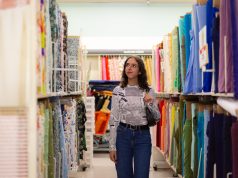Alzheimer’s disease was discovered in 1906. There are approximately 44 million people worldwide who have it — or some level of dementia. In the United States alone there are around 5.5 million sufferers. The beginning stages include mild memory loss and in the last stages, well thought out conversation is impossible. Experts say technology can allow patients to stay calm and mentally active during this pandemic.
Clara Valdes, an 86-year old, has suffered from dementia and Alzheimer’s since age 64. Her memory loss progressed over the years. Though many doctors tried helping her, they didn’t fully succeed. When the coronavirus pandemic began, her family, doctors and home care nurses began to entertain her more with technology.
Her daughter, Veronica Casely, says she recently has enjoyed her time with her mother more. Her children entertain Valdes with their gadgets and all the technology around the house. They dance to radio music, play games with different iPad applications, and scroll through videos and pictures on the kids’ phones. Veronica says she feels much more comfortable leaving Clara with her home care nurse in the mornings.
Clara’s nurse, Mireya Yzquierdo, explaines that caring for Clara used to be difficult. Yzquierdo would have a hard time getting Clara to focus and pay attention. She said it would take her around 30 minutes to get Clara to do as she was told. Now it takes 5 to 10 minutes. The home care nurse helps with daytime activity. Once she leaves, Veronica takes care of dinner and early bedtime.
CEO of the “It’s Never Too Late” program, Jack York, spoke in a Dementia Care Conference in 2014. He had a long presentation with a PowerPoint and videos on how technology has become a powerful tool for not only dementia and Alzheimer’s patients, but for everyone worldwide.
































